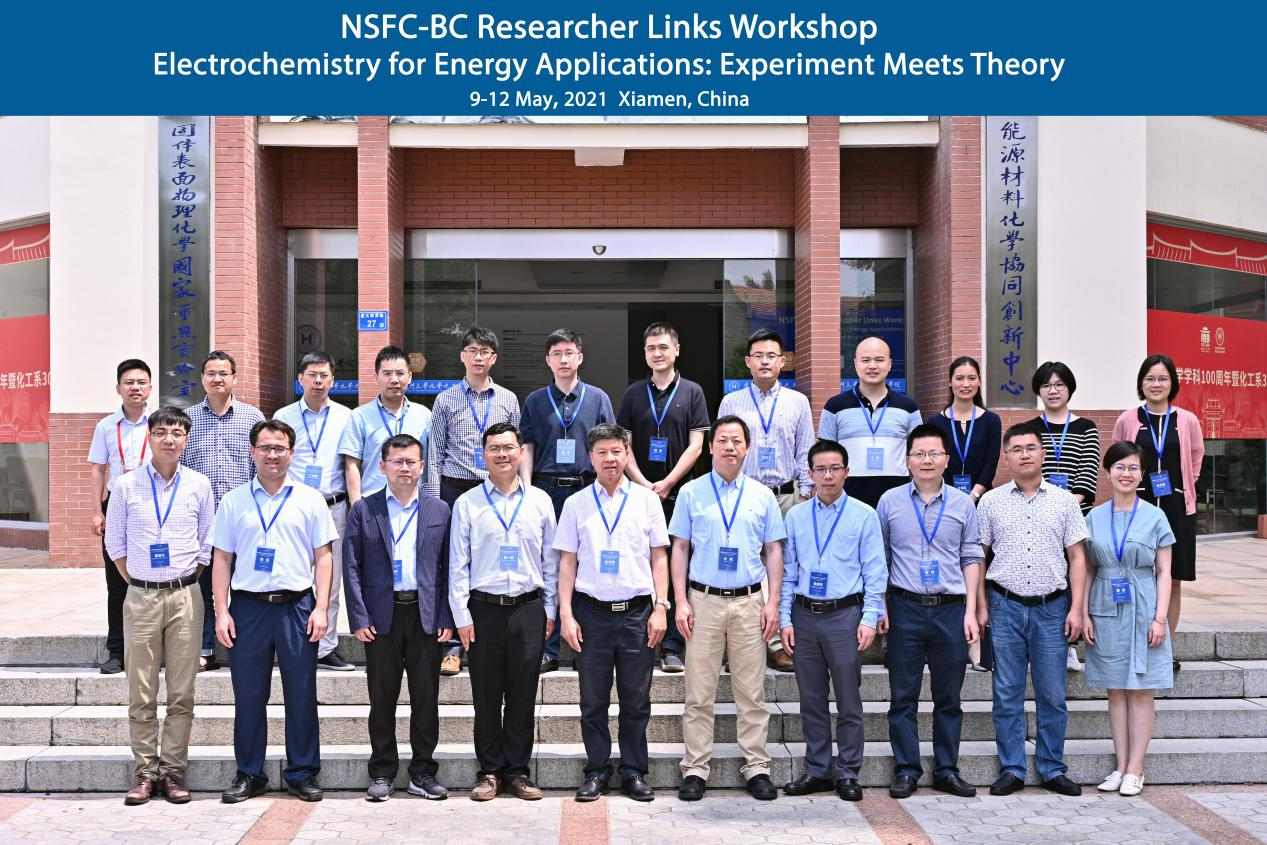From May 10th to 12th, on the occasion of the Centennial Celebration of Xiamen University, the College of Chemistry and Chemical Engineering of Xiamen University and the University of Aberdeen jointly organized the "NSFC-BC Researcher Links Workshop-Electrochemistry for Energy Applications: Experiment Meets Theory". This workshop was co-chaired by Professor Jun Cheng from Xiamen University in China and Professor Angel Cuesta from the University of Aberdeen in the UK. Due to the COVID-19 epidemic and the time difference between China and the UK, this workshop took an innovative form consisting of offline sessions for the domestic participants and online sessions for both Chinese and UK speakers. A total of 58 researchers from both China and the UK participated in the workshop.
This workshop invites Professor Shigang Sun from Xiamen University, Professor Lin Zhuang from Wuhan University, Professor Michiel Sprik from Cambridge University, and Professor Ismael Diez-Perez from King's College London as academic mentors. During the three-day workshop, 39 researchers from China and the UK gave exciting talks on the following six topics: 1. Energy conversion and storage: Batteries; 2. Electrified Interfaces; 3. Machine learning and robotics in electrochemistry; 4. Electron transport in molecules and connection to bioelectrocatalyisis; 5. Energy conversion and storage: Photoelectrocatalysis; 6. Energy conversion and storage: Electrocatalysis. A round table discussion was then followed in each session.
In the battery field, researchers discussed the current progress of various battery systems and challenges, such as the thermal stability of solid electrolyte interface (SEI) membranes. In the study of the electrified interfaces, experts discussed the in operando characterization of electrochemical systems using spectroscopy techniques, as well as computational methodologies for modelling electrochemical interfaces. For the topic of machine learning and robotics in electrochemistry, attendees focused on sharing the latest achievements of machine learning in electrochemistry, such as machine learning potentials to achieve nanosecond molecular dynamics simulations of electrochemical systems with the ab initio accuracy. In terms of electron transport in molecules and connection to bioelectrocatalyisis, speakers reviewed the development of single-molecule conductance and how to control electric fields or mechanical forces to manipulate chemical reactions, and demonstrated their latest works. Experts in photoelectrocatalysis talked about the issues of traditional optoelectronic materials, such as low utilization rate of solar energy and challenge in charge separation, the methods developed to overcome these problems, and strategies to screen new materials. The topic of electrocatalysis focused on energy storage and conversion. Several experts introduced their current works, especially in CO2 electrochemical reductions, and put forward new ideas on the road to CO2 emission reduction and carbon neutrality.
The participants from China and UK have highly praised the successful organization of this workshop and its fruitful outcomes. This workshop has promoted the research cooperation between Chinese and UK researchers in the field of electrochemical energy conversion and storage, serving as an inclusive platform for academic exchange and collaboration between China and UK.
